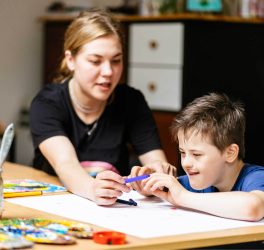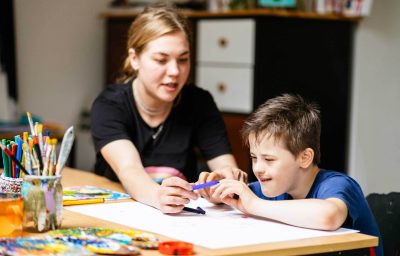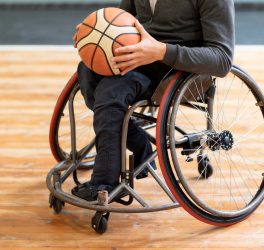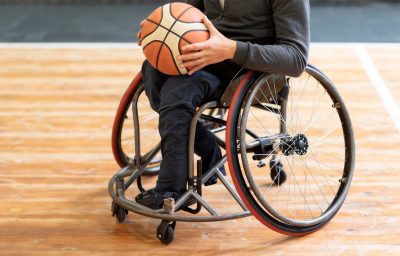Despite students returning to Ottawa’s Carleton University residences, attendant services for those with disabilities hasn’t been reinstated yet.
When the fall term began, the University went almost back to normal with in-person classes and the resumption of clubs, activities and sporting events.
But Kimberley Chiasson, 20-year-old fourth-year journalism student, can’t return. She has cerebral palsy, uses a wheelchair, and needs help with activities of daily living, like dressing and using the washroom. That’s the main reason she chose Carleton; it offered her the physical accessibility and attendant care she required to live on campus.
“Once I found Carleton, I was kind of dead set on that,” said Chiasson. “It was the only option that seemed like it would really fit.”
Carleton’s Attendant Services Program (ASP), founded in 1986, offers 24-hour attendant care to students with disabilities living in residence. Through ASP, students with disabilities can live independently and participate in campus life. The attendants are mainly fellow students, who receive on-the-job training while pursuing their own studies. The program is free, being funded by the Ontario government.
When the COVID-19 pandemic began in 2020, ASP shut down. All its students were forced to return home.
“I was disheartened, but I understood,” said Sydney Weaver, 21, a fourth-year communications student at Carleton who has cerebral palsy.
“The entire university was closed.”
When Carleton announced its residences would reopen for the 2021 fall term, many were happy to return. The university’s vaccination mandate, they thought, would make things safer.
However, in the summer, Carleton told students that ASP wouldn’t be offered this fall. The school said this decision was made to protect client and staff safety.
A Carleton spokesperson told TVO.org via email that ASP “does not allow for safe distancing, thereby heightening the risks of COVID-19 for participants and employees” and that “the university has been in contact with all affected students to provide online learning assistance and information on additional community resources.”
Online classes, however, don’t work for everyone. Chiasson, for example, said she can’t take required courses in radio and TV.
“Logistically, there wasn’t an obvious way to physically adapt my bedroom and living room to be an audio studio,” she said, adding that, if the program doesn’t return next semester, she’ll have to delay her graduation.
The fact that ASP is closed does not mean that its students don’t face risk, Chiasson explained. While she waits to return to Ottawa, she’s living with her family in a rural area near Sudbury, Ontario. Although she requires 24-hour care, agencies have only given her two hours per week from a personal-support worker. Her parents are helping her with most daily-living activities. She said she would need attendant care regardless of where she’s living, which increases her risk of exposure to COVID-19, “It’s still a risk that I have to live with. And that’s part of my reality.”
Alacia McIntosh, a past full-time and now part-time attendant, is angry about the program’s closure. “I was extremely upset that they allowed able-bodied students to return but not our clients,” she said. “I think it’s discriminatory. I think they’re segregating a group of people and preventing them from a fundamental human right, which is to access education.”
The independent-living movement, upon whose principles Carleton’s ASP was founded, has a theory called “the dignity of risk,” meaning that people with disabilities should have the right to decide which risks they are and are not willing to take. Those able-bodied students who were allowed back to campus are being trusted to assume a level of risk, said Frank Smith, national coordinator for the National Educational Association of Disabled Students, which has an office at Carleton.
“Every single day on campus, students, whether they have disabilities or not, are going to be faced with situations where they could be exposed to the virus in close quarters.”
Carleton stated that “we hope to resume ASP in January 2022, pending health and safety requirements,” and the university website indicates that it is accepting applications for the winter term.
Smith says the school has a well-deserved reputation for being a leader in accessibility and inclusion. “Carleton will say, ‘We’re the most accessible university in Canada.’ But that reputation is connected to the Attendant Services Program, and they’re falling down on this one,” he said.
Weaver said the school’s decision to shut down ASP has affected her deeply.
“It’s changed the way I see myself. My disability has always been a part of me, but I never thought it would define my future in the way that it has.
“Before, I was a student first. Now, I may have equal access to education, but I don’t have equal quality of education.”






